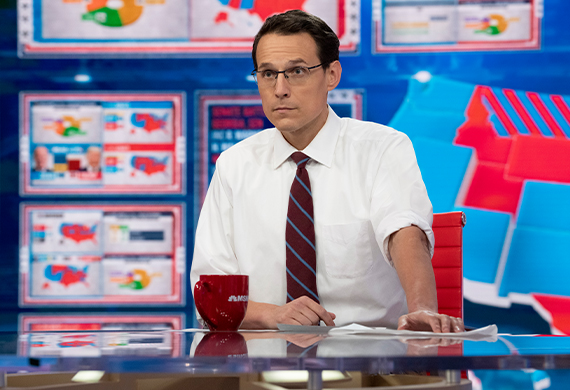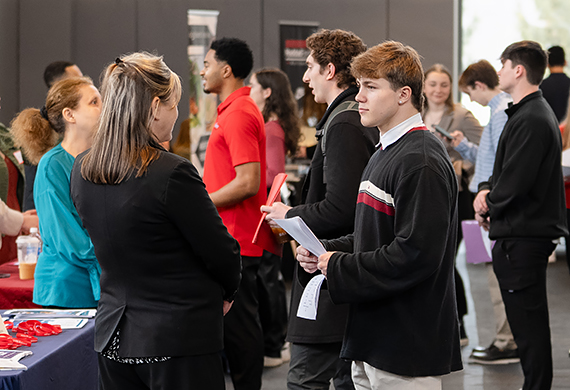Associate Professor Tommy Zurhellen Addresses the New York State Assembly

Zurhellen spoke about mental health issues facing veterans and the services they need.
December 10, 2019—Yesterday Associate Professor of English and Navy veteran Tommy Zurhellen traveled to Albany to give testimony before the New York State Assembly on the issue of veteran suicide. He was invited by Assemblymember Didi Barrett. When Zurhellen returned to campus in August after his cross-country trek for veterans issues, he said the work was just beginning. In the months since his homecoming, Zurhellen has worked tirelessly for veterans. He has raised more than $60,000, and is still serving as Commander of the local Veterans of Foreign Wars post in Poughkeepsie.
Below are the remarks Zurhellen delivered in Albany.
Statement to the New York State Assembly
Standing Committees on Mental Health, Health and Veterans’ Affairs
Tommy Zurhellen
Commander, Veterans of Foreign Wars (VFW) Post 170
Associate Professor of English, Marist College
December 9, 2019
Chairpersons and members of the New York State Assembly Standing Committees on Mental Health, Health, and Veterans’ Affairs, thank you for inviting me to offer testimony before you on the vital issue of suicide prevention, particularly for our veterans.
My name is Tommy Zurhellen, and I am a United States Navy veteran. Currently I serve as Associate Professor of English at Marist College in Poughkeepsie, New York. I also serve as Commander of Veterans of Foreign Wars (VFW) Post 170 in Poughkeepsie, where we are home to approximately 150 combat veterans and their families. However, you may better know me as the veteran who walked across America this summer to raise awareness on the same issues we are discussing today. After walking alone for 2,800 miles from Portland, Oregon back home to Poughkeepsie and talking with literally hundreds of veterans along the way, you may say I have a unique perspective on these issues facing our veterans. I would like to share three (3) brief but important points from that perspective with you today.
First, I do not believe we can address veteran suicide without also addressing the closely related issues of veteran homelessness and veteran opioid addiction. For example, the same VA report that gave us that now-infamous number of 22 veteran suicides a day in America also stated that homeless veterans are ten times more likely to be addicted to opioids than veterans who are not homeless. I work with veterans in Poughkeepsie every day, and I have never met a veteran in crisis who suffers from only one crisis. Allow me to illustrate. Recently I got a call from one of our nonprofit partners, Hudson River Housing, asking if the VFW could assist a veteran in need. This veteran was a single mom with five kids, two with special needs. She was a Navy veteran who received disability from the VA due to severe PTSD. She had a full time job but she was in the process of being evicted because she couldn’t pay her kids’ medical bills and her rent at the same time. I think we can all agree that it would be folly to try and address this veteran’s mental health needs while ignoring the fact that she and her five children were facing homelessness. I wish I could tell you complex cases like this one are uncommon, but unfortunately I get a phone call a week from local veterans in crisis. We must recognize that the crisis of veteran suicide is firmly entangled with other factors.
Second, I do not believe the problem we face is creating or funding enough resources to address veteran suicide. Rather, I believe the real problem is connecting our veterans to those resources. That’s the difficult part. I can tell you that veterans do not want to ask for help. The veterans I work with don’t want to talk to their own doctor, much less a mental health professional. You have to understand that for veterans, there is a powerful stigma attached to traditional forms of therapy. On a more hopeful note, I will say that in my community, non-traditional forms of therapy seem to be making a difference. These include a veterans’ boat workshop, where veterans can learn to craft their own kayak from scratch; a horse therapy program, where veterans learn to care for horses; and the SPCA’s Pets 4 Vets program, which pairs veterans with shelter animals. None of these are government programs. I believe they are successful because they are local, they are organized by other veterans, and they allow a veteran in crisis to improve on their own terms. Another issue that can make a huge difference in the mental health of our veterans is simply transportation; many veterans in my community simply don’t make appointments at the VA because they don’t have transportation to get there.
Finally, I believe any concerted effort to address the crisis of veteran suicide should start with local veteran outreach; that is, veterans talking to veterans. It sounds simple, but if there’s one thing I have learned from walking across the country, it’s that veterans won’t share their story with just anybody. Veterans do not want to talk with someone who does not speak the same language. They don’t want to share anything with someone who has not had the same experiences they’ve had. That’s why local veteran organizations like the VFW, American Legion and DAV can be essential community partners and part of any strategy to address veteran mental health issues. Connecting veterans with other veterans who speak the same language and share the same experiences is an essential first step, in my experience.
Thank you very much for listening today. I will now entertain any questions you may have.
Respectfully submitted,
Tommy Zurhellen
Commander, VFW Post 170



